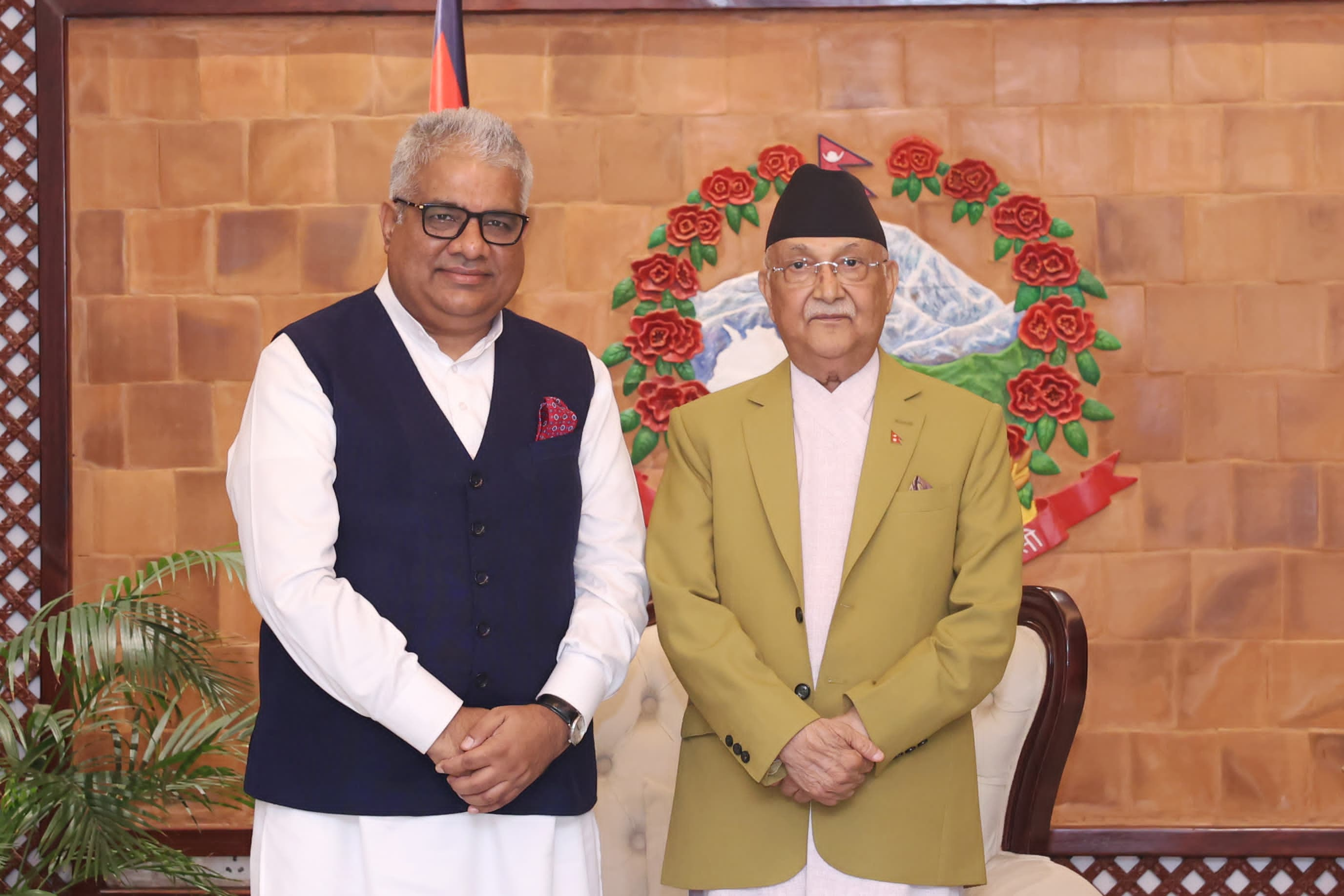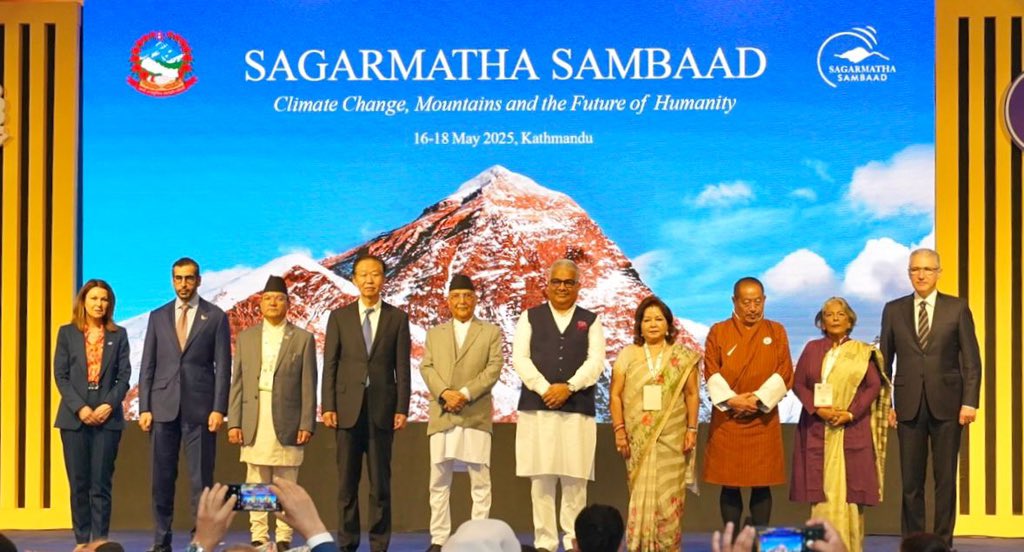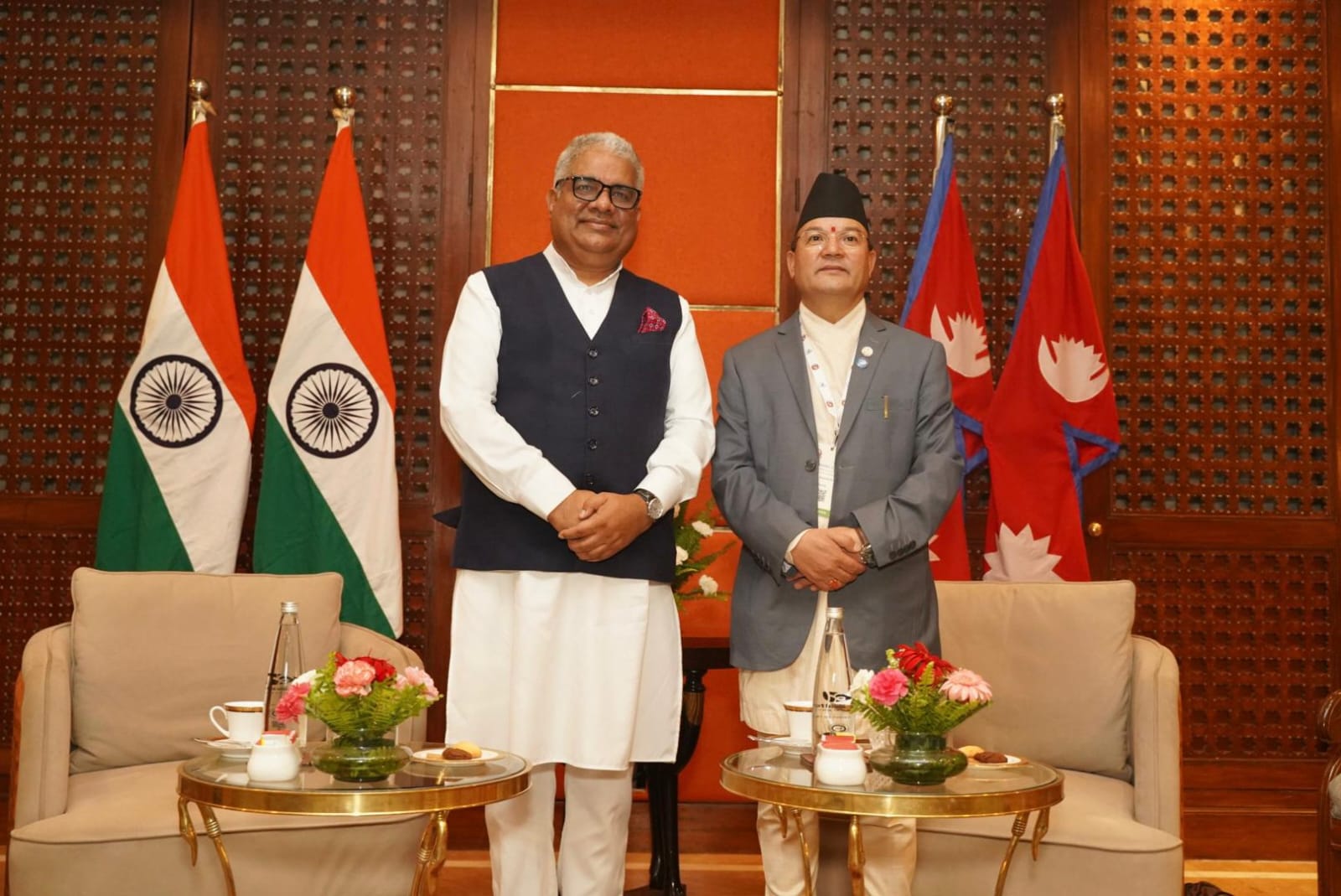India’s Environment Minister Bhupender Yadav Visits Nepal, Pledges Climate Collaboration and Cultural Respect

Kathmandu, May 16, 2025 – In an era where melting glaciers and rising temperatures threaten the very soul of the Himalayas, Indian Union Minister for Environment, Forest & Climate Change, Shri Bhupender Yadav, arrived in Nepal on a heartfelt mission — not just to participate in a global dialogue but to revive regional unity and ancient cultural bonds.
The minister’s three-day official visit from May 15–17, 2025, centered around the inaugural “Sagarmatha Sambaad,” Nepal’s visionary international forum focused on ‘Climate Change, Mountains, and the Future of Humanity’. Representing India at the summit’s opening, Yadav emphasized the urgency of transboundary cooperation for preserving fragile ecosystems and securing the heritage of mountain communities.
During his stay, Yadav held meaningful bilateral discussions with Nepal’s Minister for Forests and Environment. Their conversation went beyond policy papers, diving into lived environmental realities and shared aspirations. Both leaders reviewed existing joint efforts and opened doors for deeper collaborations.
The minister also engaged in a warm and constructive exchange with Nepal’s Foreign Minister Dr. Arzu Rana Deuba, where both sides echoed a common desire to build a more sustainable future through joint conservation strategies.
A highlight of the visit was his meeting with Nepal’s Prime Minister, Mr. K.P. Sharma Oli. In what was more than a formality, the two leaders reflected on the deep-rooted ties — civilizational, historical, and personal — that bind India and Nepal. Yadav extended greetings from India’s leadership and lauded Nepal for hosting the ambitious Sagarmatha Sambaad.
Amid high-level diplomacy, the minister made time for heritage. In Lalitpur, he visited the Patan Durbar Square area, home to two reconstruction projects supported by India after the 2015 earthquake — Adalat Bhawan and Shree Jestha Varna Mahavihar. These moments served as quiet but profound reminders that sustainable development must include rebuilding the past with respect.
As Bhupender Yadav departed Kathmandu, his visit stood as a symbol — of resilience in the face of a warming planet, and of the power of neighborly partnership rooted in empathy, shared responsibility, and timeless heritage.








![From Kathmandu to the World: How Excel Students Are Winning Big [Admission Open]](https://nepalaaja.com/img/70194/medium/excel-college-info-eng-nep-2342.jpg)
